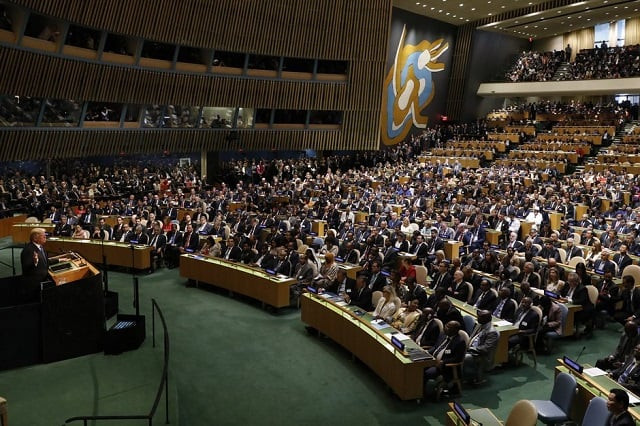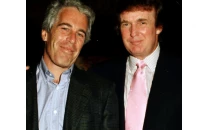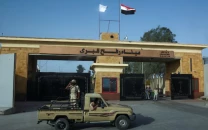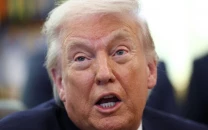Top 5 at UNGA: Those who grabbed the headlines – and the world attention
Palestine, Venezuela, New Zealand, France and Qatar take global, domestic pressing issues to centrestage

Palestine, Venezuela, New Zealand, France and Qatar take global, domestic pressing issues to centrestage. PHOTO: REUTERS
Senior diplomats and experts sought to move the needle on some critical subjects of international relevance. The crises in Syria and Palestine, Rohingya, free trade, gender inequality, humanitarian relief and non-proliferation of nuclear weapons remained the major points of contention.
FM exposes India as state sponsor of terror
Representatives from Palestine, Venezuela, France, New Zealand and Qatar delivered comprehensive speeches citing critical issues of domestic and transnational significance.
Palestine
President of the State of Palestine, Mahmoud Abbas opened his United Nations General Assembly (UNGA) address by reiterating that the oppression against Palestinian people is a flagrant violation of their rights. He appealed for the suppressed denizens suffering brutally at the behest of Israel for over five decades. As a result of which, he highlighted, that the Palestinian National Council had suspended their recognition of Israel until it recognised the state of Palestine.
Kashmir and India: Pakistan staples at the UNGA
He also expressed disapproval over Israel’s adoption of the Nation-State Law that defies the rights of the Palestinian people with their history and renders the two-state solution void.
“Jerusalem is not for sale and the Palestinian people’s rights are not for bargaining,” President Abbas told the audience while addressing in the New York City. He further rebuked President Trump’s decision to shut down Palestinian Liberation Organisation (PLO) in Washington and shift the US embassy to Jerusalem after recognising it as Israel’s federal capital.
India FM walks out of SAARC meet before Pakistan statement
While Palestinians welcome peace negotiations and humanitarian support, he urged that it is not a substitute for a political solution and that achieving independence for the Palestine is crucial to end Israeli occupation.
Venezuela
The Venezuelan President Nicholas Maduro in his address focused on some pressing global issues. Domestically, he called out US President Donad Trump for economic persecution and illegal sanctions on Venezuela, whereby the Venezuelan government is barred from using the American dollar in any business transaction.
India FM walks out of SAARC meet before Pakistan statement
He further denounced Trump as an “oligarch from Washington” who has his eyes on Venezuela for its geopolitical advantages, specifying that his country has the largest oil reserves and the fourth largest gas reserves globally.
He also called attention to subjects of global importance such as the Mexico crisis and North American Treaty Organisation’s (NATO) bombing of Libya. Maduro also objected on US meddling in Latin America. He maintained solidarity with Palestine and proposed that the international community joins hands to build a mutually beneficial and sustainable economic model.
Further, the president honoured the ‘revolutionary’ Venezuelan population for their “heroic resistance” and termed it “as a land that will never come to its knees”.
Trump at UNGA
New Zealand
Despite geographical seclusion, New Zealand Prime Minister Jacinda Ardern at UNGA 2018 reassured world leaders of her country’s presence in the international arena.
During her speech, PM Ardern acknowledged several changes in the global political climate including growing dissatisfaction among youth with regards to political systems. Calling attention to climate change, she added: “Any disintegration of multi-lateralism on the matter is catastrophic”. She continued that multi-lateralism is the key to improving international institutions and that it is incumbent upon countries to engage in sustainable and inclusive economic mechanisms.
World leaders to attend Kofi Annan's state funeral in Ghana
Overlooked by the other head of the states, New Zealand’s Ardern brought child rights to attention, laying emphasis on the environment the upcoming generation shall inherit and the concern that accompanies it. She requested that the UN should introduce reforms that promote green economies.
“The race for economic growth and wealth will make all people poorer if it comes at the cost of the environment.”
Speaking further, she expressed surprise for having to recommit to gender inequality. She insisted on inclusivity for women and that the ‘me too’ movement should transform into ‘we too’ that promises fair and equal rights for all genders.
France
French President Emmanuel Macron opened his address by calling out the UN Security Council for impeding the international community’s strength to respond to crucial matters such as inequality, poverty and human rights.
Tributes laud Annan as man of peace and champion of rights
He encouraged member states to adopt multi-lateralism whereby various nuclear, ballistic and other crises can be resolved by dialogue. During the address, he maintained that “unilateralism leads to isolation”.
With regards to trade imbalance, the French leader suggested devising strategies that ensure fair competition and fruit for all states instead of bilateral dealings. He remarked that “law of the strongest” is a state of lawlessness that often proves counter-productive pertaining to issues such as the Israel-Palestine crisis whereby only regional cooperation can fasten the peace process. He proposed that migration should be tackled under international law and by providing right to asylum.
During the speech, he laid emphasis on the Paris Agreement and its rightful implementation. He requested the UN to facilitate France in narrowing inequalities and demanded that World Health Organisation (WHO) assumes equal footing for each country.
Daily diary: Pakistan at the United Nations General Assembly
In the address, he reiterated that “France will be there to remind that nationalism always leads to defeat”. He prompted the leaders present at the address to remain cognisant of global threats and commit themselves to “preventing the scourge of war”.
Qatar
Emir of Qatar Sheikh Tamim Bin Hamad Al-Thani commenced his UNGA address by pointing out that the current global challenges are as though a test for the UN. He furthered that the process of reform should be stimulated in order to fulfill pressing challenges.
Taking note of the illegal blockade on Qatar, he remarked that it was an outcome of a preempted fomentation of allegations that constitute a breach of international law. Despite a compromise in the country’s security apparatus, the year-long blockade has resulted in strengthening of the State of Qatar.
EU slams Israel's legislation of a Jewish 'nation-state'
“The blockade on Qatar has harmed the reputation of Gulf Cooperation Council (GCC) countries.”
Among other pressing issues such as terrorism, he also broached the stalemate in Palestine and Syria. He cited the Security Council resolution 2216 (2015) whereby he committed to fight the situation in Yemen, and battle cholera in the region.
Al-Thani during the session insisted that member states must adopt transnational mechanisms to raise a unified voice against terrorism and seek appropriate action. He not only addressed national security but also maintained that freedom in cyberspace is pertinent to foster national cyber security.
Turkey accuses Israel of 'apartheid' over controversial new law
Moving on, he laid emphasis on protecting human rights, whereby he cited a law that his country had recently passed that welcomes various international organisations to establish regional offices within Qatar.



















COMMENTS
Comments are moderated and generally will be posted if they are on-topic and not abusive.
For more information, please see our Comments FAQ